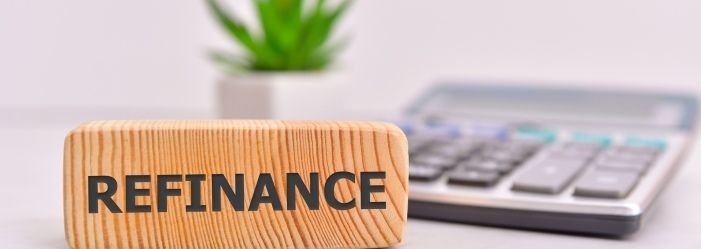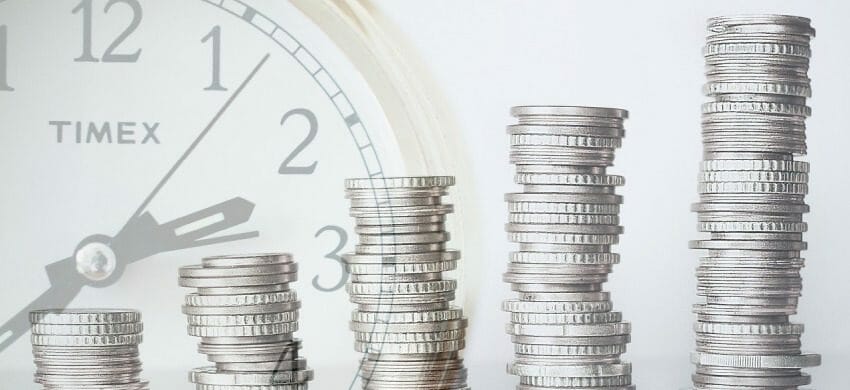Last Updated: March 20, 2024
The Pros, Cons, and Key Questions to Consider

Disclaimer: We are not qualified legal or tax professionals and are not giving advice. Always speak with a qualified professional before making any legal or financial decisions.
Are you exploring the complex world of personal finance and pondering whether refinancing your loan could be the key to unlocking savings and achieving your financial goals?
In a landscape where interest rates and economic conditions are constantly shifting, making informed decisions about refinancing can significantly impact your financial wellbeing.
This guide explores the essential considerations and benefits of refinancing, empowering you to make a choice that aligns with your long-term financial strategy
Want to skip the article and speak directly to a debt specialist? Click here for a free consultation.
What is a Loan?
A loan occurs when one party (for instance, a bank) lends you money to purchase something usually tangible, like a house or car. That money is the principal. The lender may include an interest rate and/or finance charges. The principal plus the interest are repaid over a certain length of time.
There are many types of loans and each loan can be a combination of those types.
- Secured loans require some sort of collateral, like a car
- Unsecured loans include credit cards and signature loans
- Revolving loans can be spent, paid off, and then re-spent
- Term loans are paid off over a defined time frame
- Simple interest loans involve the daily interest rate times the principal times the number of days between payments
- Compound interest rates mean that you will pay interest on interest. This is common with credit cards that are not paid in full
- Mortgage loans are very complex loans with a lot more terms and factors
- Conventional mortgages
- Conventional – within the maximum amount set by Fannie Mae and Freddie Mac
- Non-conventional – Any loan that is funded by the government
- Jumbo mortgages – large loans over $510,400
- Government-insured mortgages
- FHA – borrows without a large down payment
- USDA – rural areas
- VA – military
- Fixed-rate – set rate loan
- Adjustable-rate – variable rate loan
- Interest-only – only pay interest for 5-7 years and then higher payments
- Balloon mortgages – lower payments with the remainder due at the end of the term
Now that we have discussed loans, let’s discuss refinancing. There are some very good reasons to do it.
What is Refinancing and How Can it Help?
Interest rates fluctuate based on economic conditions. If you have taken out a loan at a higher interest rate, you may save a huge amount of money by lowering your interest rate. If you have an ARM, you may be able to lock in a better interest rate before the interest rate increases.
Lowering monthly payments is another benefit of refinancing, especially if you get a far lower interest rate. It can also shorten the duration of your loan as you pay it off more quickly.
If you have equity built up in your home, you can take out a loan that includes some of the equity and get cash out. For instance, if you have a house worth $100,000 and equity of $40,000, you can take out a loan for $100,000 and pay off the $60,000 remaining mortgage and have $40,000 leftover for upgrades, college, or other expenses.
Streamlining finances is another benefit of refinancing. You may be able to roll all your debts into one loan and then refinance that loan as the interest rates vary. Paying off higher-interest student loans is always a good idea.
What To Consider Before Refinancing
Before you refinance a loan, you should take into consideration several questions. Most people consider refinancing mortgages because they are the largest loan most people will ever have. We’ll consider refinancing a mortgage, but the questions remain the same.
- Why are you refinancing? Are you trying to get a lower interest rate, shorten your loan duration, or get cash for a home to pay off other loans?
- What is the current interest rate? Is it significantly lower than the one you have now? Will the savings offset the cost of refinancing?
- Are you comparing rates to comparable rates? ARM rates look great in the beginning when compared to most fixed interest rates, but they have the possibility of rising rapidly at the end of the loan.
- What is your credit score? The better your credit history, the better your loan rates will be.
- What is your debt-to-income ratio? The better it is the better your rate will be.
- Is your home’s equity high enough to make a cash-out possible (if you want one)
- What are the closing costs and can you pay them up front?
- What is the breakeven point? Divide your monthly savings by closing costs to see when you will break even. If it is before you plan to sell, it may be a good opportunity.
- Mortgage Insurance – you may be able to drop your mortgage insurance if you have enough equity.
- What is your new term? A shorter term will be more than a longer term, but you will save on interest. Trading a 30-year loan for another 30-year loan may not make a huge difference to your long-term finances.
Recent Federal Student Loan Changes
After a three-year pause, federal student loan payments resumed on October 1, 2023. Interest began accruing again on September 1. The Biden Administration implemented a new program called SAVE to help borrowers struggling with payments. The program reduces monthly payments based on income. Those with no income can have $0 payments.
If payments are made on time for 10 years, any remaining balance may qualify for forgiveness. To qualify for the SAVE program, you must have eligible federal student loans and meet income requirements based on your state and family size. You can apply online in about 10 minutes. The application process will determine your personalized payment amount. Once approved, you will recertify your income and family size annually.
As your income changes, your payment will be adjusted. The three-year forbearance on student loan payments and interest that began in 2020 has ended. With the October bills coming due, federal loan servicers are required to provide you with a billing statement at least 21 days in advance.
Consolidating Federal Student Loans
Borrowers can consolidate multiple federal student loans into one direct consolidation loan from the Department of Education. This lets you combine multiple payments into one manageable monthly bill. Consolidation also allows you to extend repayment up to 30 years, which can significantly reduce your monthly payments.
Consolidating rolls all your eligible federal student loans into a single new loan with a fixed interest rate based on the average rate of the consolidated loans, rounded up to the nearest one-eighth of a percent. For example, if you consolidate loans with 5%, 6%, and 7% interest rates, the new consolidation loan will have an interest rate of 6.125%.
Refinancing Private Student Loans
For borrowers with private student loans, especially those with variable interest rates, refinancing can provide major benefits. By locking in a low fixed rate, you can avoid unpredictable rate hikes and save money over the life of your loan as interest rates increase across the board.
Most private lenders allow you to select a fixed term of 5, 10, or 15 years during the application process. Extending to a longer term reduces your monthly payments but increases the total interest paid over the loan period. Compare total costs over the life of the loan when selecting your refinance term.
Public Service Loan Forgiveness
If you work in an eligible government or nonprofit job, you may qualify for the Public Service Loan Forgiveness program. After making 120 qualifying payments, the remainder of your federal direct loans can be forgiven tax-free. Payments must be made under an eligible repayment plan while working full-time for a qualifying employer.
FAQs
Conclusion
Deciding if refinancing your student loans is right for you requires careful consideration of your financial situation and loan details. Key factors to weigh include budget impact, career plans, risk tolerance, and a comparison of total costs between current loans and potential refinance options.
Refinancing federal loans causes a loss of government protections like income-based repayment and forgiveness programs. However, refinancing private loans, especially variable-rate loans, can provide stability and savings.
Meet with a financial advisor if unsure, but the bottom line is refinancing student loans can be a smart move in the right circumstances for the right borrowers. Doing your homework on the pros, cons, alternatives, and eligibility requirements will lead to the best decision for your needs.
Pacific Debt, Inc.
Buying a home with bad credit or a terrible debt-to-income ratio is an almost impossible task. Getting a decent loan rate with bad credit could be equally hard. If you have bad credit and excessive debt, you may need someone to help you find your way out of debt without obtaining a new loan, Pacific Debt can help.
If you have more questions, contact one of our debt specialists today. The consultation is free, and our debt experts will explain your options to you.
*Disclaimer: Pacific Debt Relief explicitly states that it is not a credit repair organization, and its program does not aim to improve individuals' credit scores. The information provided here is intended solely for educational purposes, aiding consumers in making informed decisions regarding credit and debt matters. The content does not constitute legal or financial advice. Pacific Debt Relief strongly advises individuals to seek the counsel of qualified professionals before undertaking any legal or financial actions.
Reduce Your Credit Card Debt By Up to Half

BBB Reviews | 4.9/5.0 Rating









 Do Not Sell My Personal Information
Do Not Sell My Personal Information